Burkina Faso’s armed forces chief was replaced on Thursday, January 9, as the military struggles to put a stop to attacks in the west African nation.
Moise Miningou replaced Major General Oumarou Sadou as Chief of the General Staff of the Armed Forces by presidential decree.
Sadou had served as armed forces chief for two years and Miningou was promoted to Brigadier General ahead of his Thursday appointment, AIB reported.
According to a biography published by LeFaso.net, Miningou, 58, was appointed Deputy Chief of Staff of the Army in May 2016, and commander of the Central Army Group in May 2017.
He first studied at the Royal Academy of Meknes is Morocco, before specialist studies at the artillery training school in Draguignan, France. He later took courses in Mali and at the Royal College of Higher Military Education in Kenitra, Morocco.
He has been involved in military maneuvers in Mali, Burkina Faso, Togo and Benin.
One of the poorest countries in the world, Burkina Faso has been battling an escalating wave of attacks over the last three years, beginning in the North region near the border with Mali.
The country lies in the heart of the sprawling, impoverished Sahel, on the southern rim of the Sahara.
Attacks have spread to the East region, near the border with Togo, Benin and Niger.
Most attacks are attributed to the jihadist group Ansar ul Islam, which emerged near the Mali border in December 2016, and to the Support Group for Islam and Muslims (JNIM), which has sworn allegiance to Al-Qaeda in the Islamic Maghreb.
Those groups are believed to be responsible for more than 255 deaths since 2015.
On December 31, Burkina Faso declared a state of emergency in provinces within seven of the country’s 13 administrative regions after 10 gendarmes were killed near the border with Mali on December 27.
Five days earlier, three soldiers were killed when their vehicle was struck by a roadside IED between Fada and Kompienbiga. Four other soldiers were injured.
Six ‘terrorists’ were shot dead by police in eastern Burkina Faso during an attack on a security patrol on December 3. Two “alleged terrorists” had been arrested earlier and were handcuffed in the vehicle at the time. They were killed along with four others in the ensuing clashes.
Three days earlier, four police officers and a civilian were killed near Boungou when their convoy was hit by a roadside bomb and gun attack.
President Roch Marc Christian Kaboré said in September that additional security measures would be unveiled to “resume the initiative” throughout Burkina Faso “to eradicate the curse of terrorism.” Security forces have detained hundreds of people in connection with attacks.
On September 17, Burkina Faso’s Super Tucano light attack aircraft were used during air strikes and clearance operations in the Pama and Gayeri areas in the East Region. The military said “terrorist bases” were destroyed in the operations.
French air operations
On October 2, Mauritanian General Hanena Ould Sidi, the new commander of the G5 Sahel Joint Force, accompanied by Sadou announced that the “planning of operations that will take place shortly” with a view to “neutralize terrorists.”
The next day, two French Mirage 2000 fighter aircraft struck a convoy of ‘terrorists’ on motorcycles near the Inata gold mine in the northern Soum province after a gendarme was killed and another injured in an attack on a security post.
That air operation was followed four days later, when, on October 7, the French armed forces conducted an air operation near Pama in eastern Burkina Faso involving Gazelle and Tigre helicopters after a Burkina Faso soldier was killed and another injured after a military vehicle was hit by a roadside bomb near Kabonga.
The G5 Sahel, comprised of Burkina Faso, Chad, Mali, Mauritania and Niger, was launched in 2014 to improve cooperation on development and security in West Africa.
They launched the G5 Sahel joint counter-terrorism force in July 2017 with a mandate to combat terrorism, transnational organized crime and human trafficking in the Sahel area.
US counter-terrorism assistance to G5 Sahel member states almost doubles to $111 million
With reporting from AFP


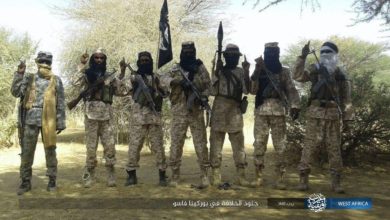

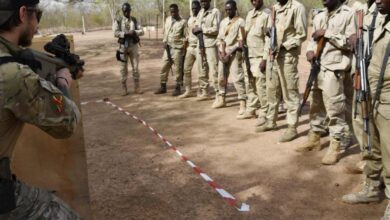
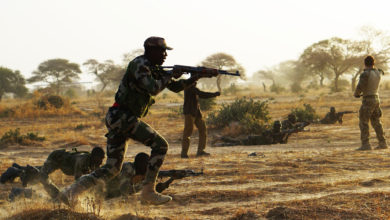
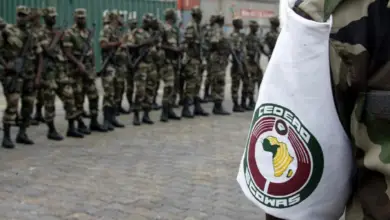

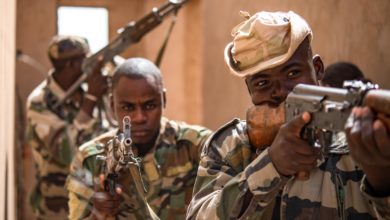
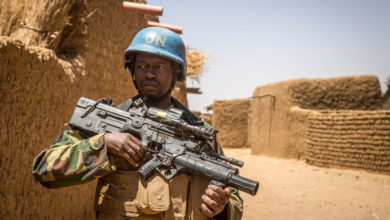
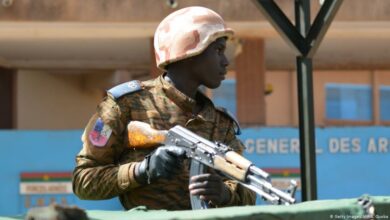
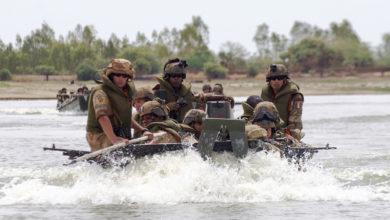
3 Comments